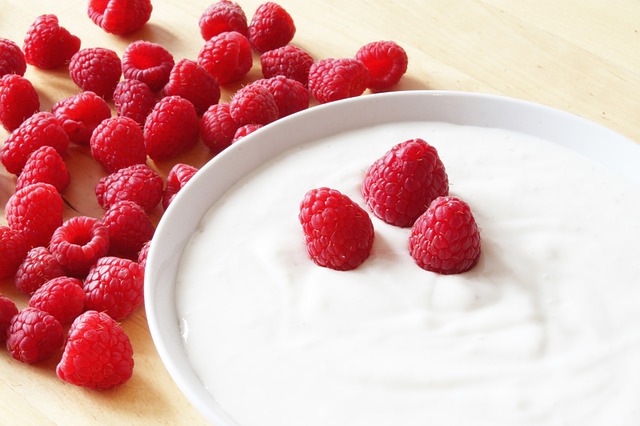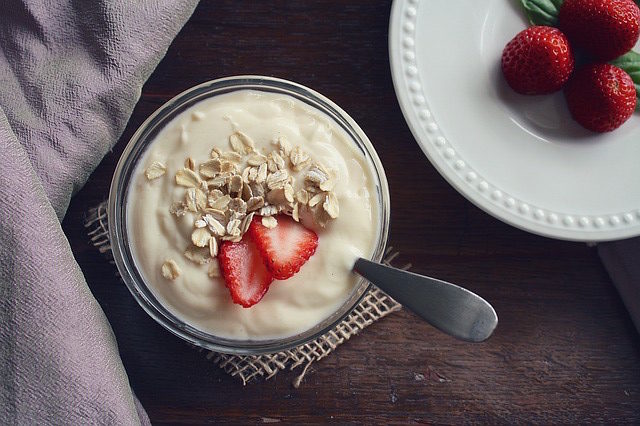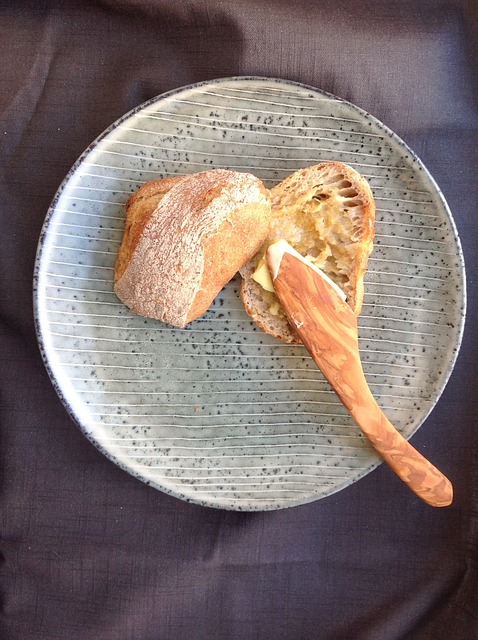You’ve probably heard of probiotics, but do you know exactly what they are? Probiotics and gastrointestinal health are gaining more attention as research reveals the benefits of a balanced microbiota. Probiotics are defined as live microorganisms that are the same or similar to the beneficial microorganisms that naturally live in the human body. Research on probiotics has shown that they can boost immunity, manage irritable bowel syndrome, assist in weight management, and improve your overall health.
As research reveals the benefits of probiotics, people have started to take notice. Data collected from the 2012 National Health Interview Survey revealed that probiotics ranked as the third most commonly used dietary supplement among adults. Interestingly, probiotic use quadrupled between 2007 and 2012. Although probiotics are available in pill form, I always say that food comes first! Here are a few natural food sources of probiotics to incorporate into your diet.
- Yogurt: Yogurt is definitely the most common and widely available probiotic food. Fermented milk and live active cultures come together to create this popular probiotic-rich snack. However, there’s a difference between plain yogurt and many of the fruit-flavored varieties available at the supermarket. Many of the mainstream yogurts have up to 25 grams of sugar for a mere 6 ounces! Take a look at the nutrition label and choose a yogurt with less than 12 grams of sugar per serving. My favorite yogurt brands include Siggi’s Icelandic-Style Yogurt, Fage Plain Greek Yogurt, and Nounos Traditional Greek Yogurt.

- Kefir: This tart, smoothie-like beverage originated in Russia and Turkey. With between 10-20 different types of healthy bacteria, kefir is thought to be an even better source of probiotics than yogurt. You can drink a glass of kefir with breakfast in the morning, or add it to a smoothie to help cut the tangy taste. Try to choose a kefir lower in sugar, as many commercial brands add extra sugar to boost the flavor. Try Wallaby Plain Kefir for an organic, low-sugar variety.
- Kombucha Tea: This fermented, sweet black tea has gained much popularity in the health circuit. Kombucha provides a potent source of natural probiotics. There are a variety of brands that now make Kombucha tea, so cultures and preparation methods may differ. One of my favorite brands is Health-Ade Kombucha, available at Whole Foods.
- Kimchi & Miso: Kimchi is a traditional Korean side dish typically made by fermenting cabbage, cucumber or radish. Try ordering this as a side when out to dinner, or adding it to a typical sandwich during the day. Another probiotic-rich starter is miso or miso soup. This food is made by fermenting soybeans to produce a miso paste. Miso has a strong flavor and can be high in sodium, but a little bit goes a long way.
- Sourdough Bread: A dietitian telling you to eat bread?! Well, sourdough bread is fermented by using Lactobacillus cultures, a healthy probiotic. Before you run to the bakery, remember that too much of anything is never a good thing. Instead of adding sourdough bread into your diet, try swapping out the bread on your lunch sandwich for sourdough bread once in a while. If you are given the option of white bread versus sourdough when out at a restaurant, opt for the sourdough for a healthy probiotic benefit.
Most of these probiotic-rich foods are easy to find and add to your diet. Start by picking one or two of these foods to incorporate as a snack or part of a meal. Consuming these foods throughout the week can help you reap the health benefits of a balanced gut microbiota.


